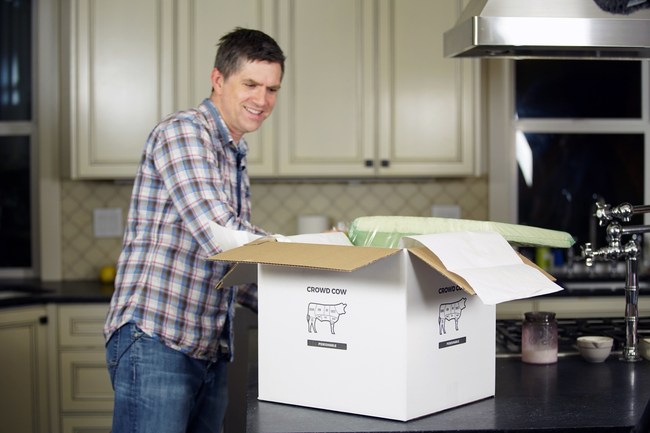Crowd Cow, an online marketplace for craft meat, has selected GreenCell Foam as an exclusive shipping material for its products.

Image: Crowd Cow shipping container featuring Green Cell Foam. Photo: courtesy of Green Cell Foam / PRNewswire.
Manufactured by KTM Industries, Green Cell Foam is a certified compostable and biodegradable packaging material made from non-GMO cornstarch in the US.
Launched in 2002, the Green Cell Foam can be used to protect pharmaceuticals, foods of all types, wine bottles, electronic products and parts.
Crowd Cow has decided to use KTM’s GreenCell Foam, as part of its commitment to sustainable practices.
Crowd Cow CEO and co-founder Joe Heitzeberg said: “Just as our farmers are great stewards of the land, it’s important to us and our customers to have compostable insulation, especially as China takes less of our country’s recycled materials.”
The BPI-certified Green Cell Foam can be dissolved in a bucket of water to serve as food for plants, burned on the grill or used as a fireplace starter.
Crowd Cow will use Green Cell Plus, the original product wrapped in a recyclable moisture-resistant barrier, to make shipments for its customers.
According to the company, the outer film can be recycled with #4 plastics, while the interior can be melted, composted or burned.
Sustainable shipping alternatives are becoming significant for companies such as Crowd Cow, as the demand for food subscription services continue to be increased.
Green Cell Foam is claimed to be the only product that offers temperature-regulating insulation and nearly indestructible cushioning to its contents while being 100% compostable.
The outer film that protects the inserts from moisture is 100% recyclable. The company plans to replace this film by another material by the end of this year to make the complete packaging biodegradable.
KTM Industries CEO Tim Colonnese said: “We’re proud of the work we do for partners such as Crowd Cow, who specialize in delivering sustainably sourced, responsibly raised foods to consumers and understand the importance of continuing this thread of sustainability all the way to the materials in which their products ship.”
